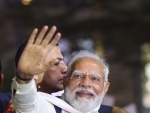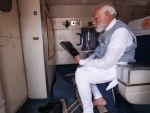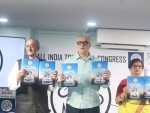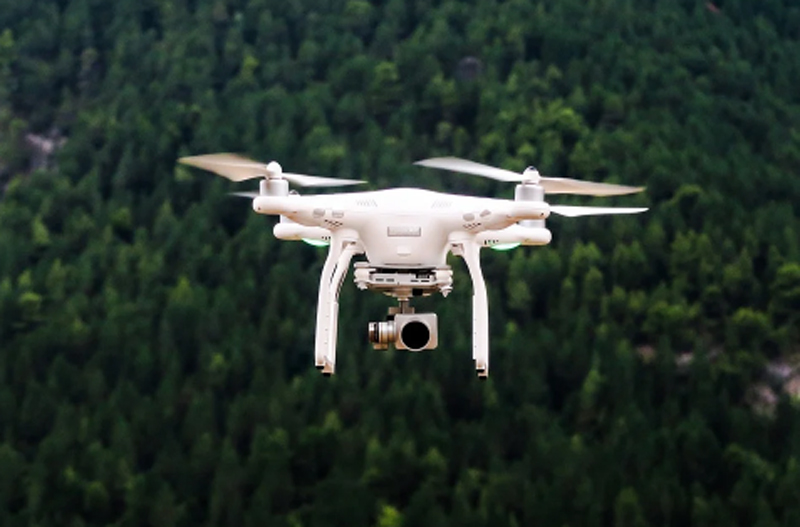 Kashmir Drone Attacks
Kashmir Drone Attacks Amidst moves towards political rapprochement in J&K, drone attacks by terrorists have serious implications
The past few days have seen a spurt of activities relating to Jammu & Kashmir (J&K), some of which carry the potential to have a significant bearing on how the coming months and years pan out in the troubled region.
The drone attack on a defense installation in Jammu, which reports indicate traced its roots to Pakistan and its terrorist proxies, was the first ever drone strike by terrorists directed against an Indian military target.
The attack does not portend well for the prospects of long-term peace and stability in J&K, as it could herald the introduction of a serious force multiplier by Pakistan into an already volatile region.
The attack came almost immediately after the successful ice-breaking meeting that Indian Prime Minister Narendra Modi had on 24 June, quite against the run of play, with all prominent mainstream political leaders of J&K.
It conveyed Pakistan’s discomfiture at the fresh outlook towards rapprochement that has seemingly been adopted by the government in New Delhi, and reiterated the view put forth in several EFSAS publications that Pakistan’s real interests in J&K are far removed from the welfare and the well-being of the people of J&K, something that it deviously claims with great verbosity.
This lack of empathy of Pakistan for the people of J&K came further to the fore when the Prime Minister of Pakistan-Administered J&K recently had very strong words to say about Pakistan’s virtual colonization of the part of J&K that it forcibly holds.
On the face of it, the two drones that struck the Indian Air Force (IAF) station at Jammu airport on 27 June was not a destructive or a major terrorist event, especially when seen in the context of the damage and the loss of lives that India, J&K in particular, has had to endure from earlier Pakistan-backed terrorist attacks. In Jammu, two IAF officers suffered only minor injuries when the drones, carrying explosives, crashed into the IAF station within six minutes of each other.
The Jammu station, located barely ten miles from the border with Pakistan, is a base for India’s Mi-17 helicopters, and fighter jets are not based there.
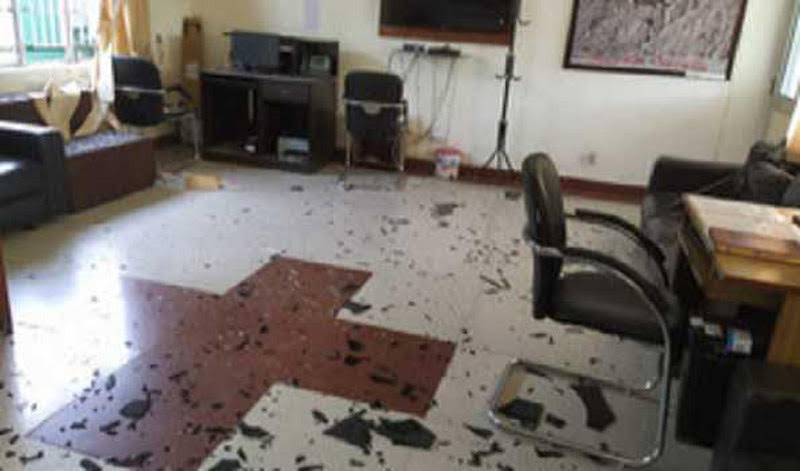
The explosives were dropped close to the helicopter hangers, but did not cause any damage to them. The first blast ripped off the roof of a single-storey building in the technical area of the airport, and the second exploded on the ground.
Despite the drone strikes not achieving much in physical terms, they nevertheless quickly and aptly caught the attention and raised serious concerns in India.
Dilbag Singh, the chief of the J&K police, asserted on 29 June that preliminary enquiries had indicated that the Lashkar-e-Taiba (LeT), a known terrorist proxy of the Pakistani intelligence services, had carried out the drone strike.
Saying that the attack represented a new threat from Pakistan-backed terror outfits, he added that the police had sensitized vital installations to remain alert especially in view of the fact that two other drones had been spotted flying suspiciously around midnight on 28 June in the vicinity of the Kaluchak military base on the outskirts of Jammu city.
Given the gravity of the matter, the Indian government soon handed over the probe into the drone incidents to the country’s National Investigation Agency (NIA).
Aijaz Hussain in an article in The Diplomat underlined that “Indian authorities in recent years have raised the possibility of drone attacks by rebels in the region, especially after repeatedly accusing Pakistan of using Chinese-made drones along the frontier to drop weapons packages for militant groups since last year… The (Jammu) incident, if proven to have been carried out by anti-India rebels, would mark a major shift in strategy against New Delhi. Rebels have primarily used classic guerrilla tactics such as ambushes, hit-and-run attacks, remote-controlled explosions, and car bombings”.
Reports in the Indian media revealed that inputs had been received by Indian intelligence agencies as early as in 2019 that the LeT had been attempting drone-based attacks on Indian targets, for which the terror group was modifying drones to carry payloads weighing up to 5 kg. Meanwhile, Pakistan has been using drones since last year to drop off arms and ammunition in J&K and Punjab for its terrorist assets there.
The major shift in strategy alluded to by Hussain above also represents a marked escalation in the scope of terrorist violence.
The use of drones by terrorists to attack military installations and other targets from the secure comfort of a distant location is a very dangerous trend, not just for South Asia but also beyond. Those encouraging or embarking in this direction, Pakistan in this case, must be sent the message early on that they were breaching a very dark red line, the consequences of which would be severe.
Ironically, as much as its decision to resort to the rather risky pursuit of drone terrorism may have been influenced by the fact that Pakistan has been on the adverse list of the Financial Action Task Force (FATF) for the last three years, the FATF is actually one of the instruments of the international order that will have to take careful note of the new direction of Pakistan’s terrorist actions and factor them in when making future decisions concerning Pakistan’s listing.
It was the threat of FATF blacklisting at a juncture when Pakistan is in an economic mess that, to a large degree, pressured Pakistan to tone down its conventional modes of promoting terror.
The low cost and relative deniability that drones afford seem to have encouraged Rawalpindi to test it as a terrorist instrument of choice for the future.

Last week’s FATF plenary, which decided as anticipated to retain Pakistan on the grey list, assessed Pakistan’s performance on a certain set of parameters. That set needs to be expanded to reflect the new reality, and the next plenary must take that into serious consideration.
India seems to have taken the drone attack with the seriousness that it deserves. At the United Nations General Assembly (UNGA), V. S. K. Kaumudi, a senior official of India’s Ministry of Home Affairs (MHA), stressed at the 2nd High Level Conference of the Head of Counter-Terrorism Agencies of the Member States that “Being a low-cost option and easily available, utilization of these aerial/sub-surface platforms for sinister purposes by terrorist groups such as intelligence collection, weapon/explosives delivery and targeted attacks have become an imminent danger and challenge for security agencies worldwide.
The possibility of the use of weaponised drones for terrorist purposes against strategic and commercial assets calls for serious attention by the member States”.
A high-level meeting was chaired by PM Modi on 29 June to discuss measures and strategies to counter “weaponised drones used for terror purposes against strategic and commercial assets”. India would, without doubt, also be mulling offensive retaliation if Pakistan chooses to persist with what it began in Jammu. Pakistan may find itself much more vulnerable and soft-bellied if India opts to join in the same game.
With its far superior technological prowess and much greater resources, India could quickly put Pakistan at the receiving end.
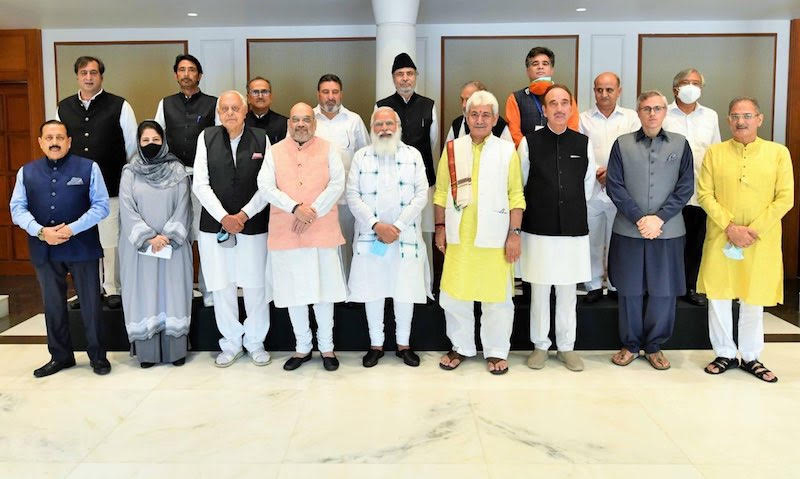
Also, India has traditionally found it much more difficult to function with the same degree of freedom in Pakistan that Pakistan has been able to do in most parts of India.
That has mainly been because of Pakistan’s status as a security State, one that is paranoid of India, as opposed to the freedoms that democratic India affords. If India opts to lock horns in the drone sphere, any advantage from the strict checks that Pakistan has kept on Indians and Indian interests in the country may well be neutralized rather rapidly.
Amid suggestions that the drone attack was a ‘retaliation’ for an explosion near LeT chief Hafiz Saeed’s home in Lahore that Pakistan blamed on India, a more plausible explanation is Pakistan’s anxiety over the unexpected political outreach by PM Modi in J&K. This is borne out by the fact that following the announcement of Modi's intention to hold talks with the political leadership of J&K, a sudden spike in targeted killings in the Kashmir Valley also became noticeable.
As the Corps Commander of the 15th Corps of the Indian Army that is stationed in Srinagar put it, “Every time there is stability in the Kashmir Valley, or the Jammu and Kashmir region, as we have seen recently, there will always be the introduction of new systems or actors (by Pakistan) to counter this... and the next level in this is greater deniability”.
The willingness of the political leadership of J&K to sit across the table with Modi despite the Indian government’s 5 August 2019 decisions rattled Pakistan.
The fact that a civilized dialogue was taking place in New Delhi belied most of what Pakistan had been alleging about the Indian government’s outlook towards J&K.
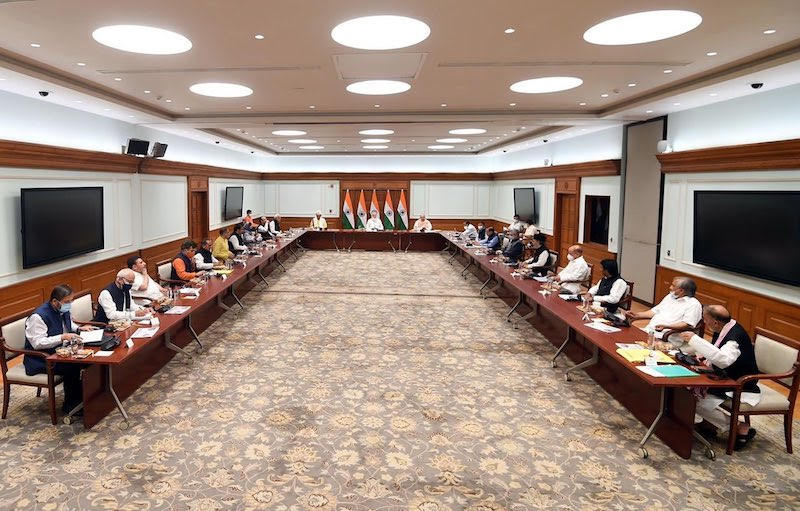
Even if senior members of the Indian government had earlier written off and derided the established political leadership of J&K as corrupt and inconsequential, and the holding of the meeting with the very same politicians was viewed as a volte face by some commentators, it did reflect a degree of maturity and a willingness on the part of the Indian government to reassess the situation and to change course.
The same would hold true even if the allegations that the talks were being held on the prodding of the United States (US) or because the Indian government found itself without other workable options in J&K were correct.
As for the political leadership of J&K, their being invited to the talks conveyed that no matter what critics may have to say about their roles and performance on the political stage in J&K and in New Delhi, the democratic and secular credentials of these leaders remained unfrayed.
Even if it still remains somewhat unclear exactly what the meeting deliberated on and whether anything was agreed upon, what has emerged thus far is that the J&K leaders were actually provided the opportunity to air their concerns and grievances, including those related to the 5 August 2019 changes.
The impression that has emerged from what has been said so far is that while the Indian government was open to the idea of giving back J&K its statehood, reversal of the abrogation of Article 370 was at the moment a bridge too far.
The meeting could certainly not have succeeded in addressing the complex maze of problems that plague the J&K issue, but a democratic restart can only be described as a positive step by both sides. After all, solutions can only be found through dialogue, negotiations, accommodation and a degree of flexibility. As J&K People's Conference chairman Sajjad Lone put it, “There’s no other way than a dialogue. We need to tread a reconciliatory path”.
Pakistani Foreign Minister Shah Mahmood Qureshi dismissed the New Delhi meeting as a “public relations exercise”. However, what locus standi Pakistan has to comment on a meeting that leaders both in New Delhi and Srinagar were willing and keen to attend is difficult to understand.
How and why Pakistan is entitled to comment upon and question the decisions and activities of the political leadership of J&K, especially something that all major political leaders of J&K, in their wisdom, believed to be appropriate and worthwhile, is anybody’s guess.
This is especially so when the recent statement of Raja Farooq Haider Khan, the so-called Prime Minister of Pakistan-Administered J&K, is taken into account. Commenting on a recent claim of Qureshi that he had a solution for the J&K issue, Haider said, “How could he decide the fate of Kashmiris single-handedly without involving the Kashmiris? Kashmiris will not accept any dictation and the fate of Kashmir could be decided only with the will and wish of the people of Kashmir”.
Haider also made startling revelations about Pakistan’s desire to turn Pakistan-Administered J&K into a virtual colony. He asserted that “We will sacrifice our lives but will not allow 'AJK' (Pakistan-Administered J&K) to become a province of Pakistan”.
He claimed that Pakistan’s Federal Minister of Kashmir Affairs had approached him with an offer of Rs 5 billion for Pakistan-Administered J&K on the condition that Haider’s government would no longer be allowed to undertake any checks and assessments on Pakistani projects in the region. He also alleged that Pakistani leaders frequently aver today that “India is very strong, forget Kashmir, and let us look for something else”. Haider retorted, “How will we forget Kashmir and why? Who are you to ask us to forget”.
In addition to reassuring and calming the so-called PM of the part of J&K that it forcibly occupies, Pakistan would do well when speaking about J&K to keep the interests of the people of J&K, and not Pakistani interests in the region, at the forefront. If that were to be the case and Pakistan were genuinely interested in the welfare of the people of J&K, it would have welcomed the resumption of a meaningful democratic dialogue in New Delhi.
Democracy, however, is not something Pakistan could realistically and reasonably be expected to understand or appreciate.
Support Our Journalism
We cannot do without you.. your contribution supports unbiased journalism
IBNS is not driven by any ism- not wokeism, not racism, not skewed secularism, not hyper right-wing or left liberal ideals, nor by any hardline religious beliefs or hyper nationalism. We want to serve you good old objective news, as they are. We do not judge or preach. We let people decide for themselves. We only try to present factual and well-sourced news.





